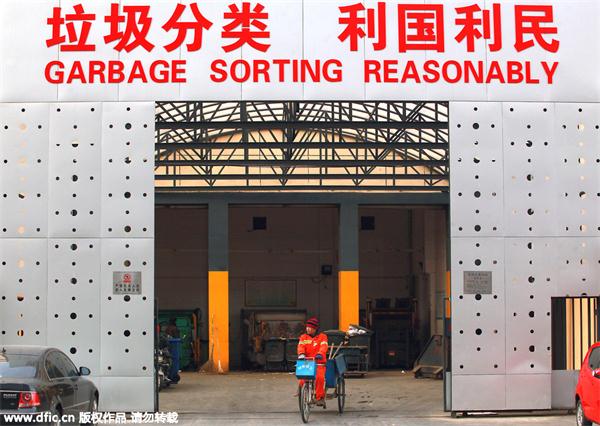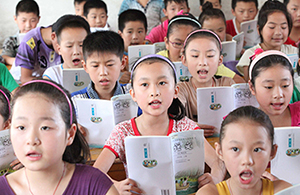Sort garbage, get rewards
(China Daily) Updated: 2015-12-15 08:05
 |
|
Chinese garbage collectors deliver residential waste to a new recycling trash depot, which proudly encourages residents to recycle, in Beijing on February 9, 2014. [Photo/IC] |
The push for garbage classification has advanced sluggishly and mostly fruitlessly in much of China, but Beijing is adopting an innovative way to try and encourage the practice in the capital.
At a recent news briefing, Beijing's sanitation department said the capital will popularize the sorting of garbage through the application of quick response codes. Under the new system residents who register for an account on China's most popular instant messaging app, WeChat, will receive reward points that they can swap for commodities and even cash when they sort their garbage.
The system has been successfully piloted in some residential areas, and is due to be extended to 350 residential communities covering more than 1 million residents next year.
Although the actual effects of the garbage classification reward program will be known only after some time, the move should be applauded.
Public opposition to incineration plants and the lack of sites for landfills mean there is a pressing need for more garbage to be sorted and recycled to cope with the ever-increasing amount of waste generated in the city.
A number of cities have made efforts to promote the sorting of garbage, but no obvious results have been achieved because of the lack of workable means and poor public awareness.
The application of the quick response codes and rewards may encourage people into classifying garbage, but without fundamentally raising public awareness of the need to sort waste, the use of pure economic means may not lead to a drastic change, especially among elderly residents who may have little experience of using the technology.











